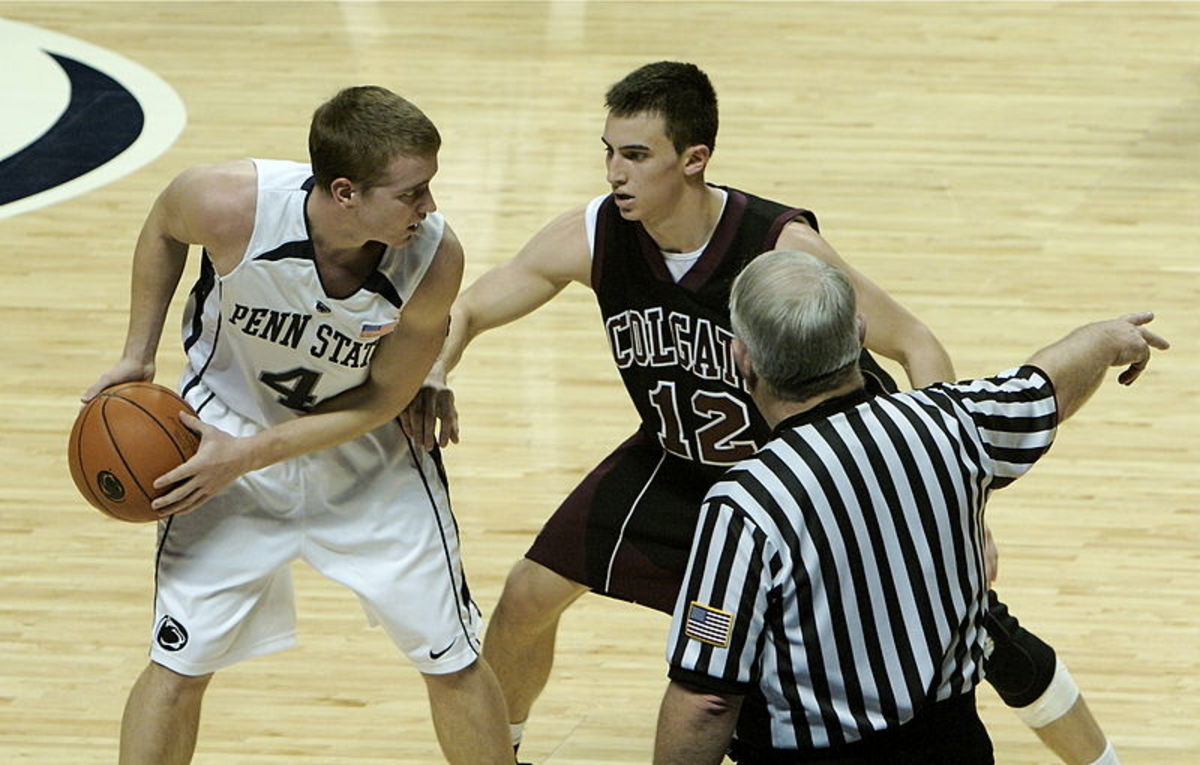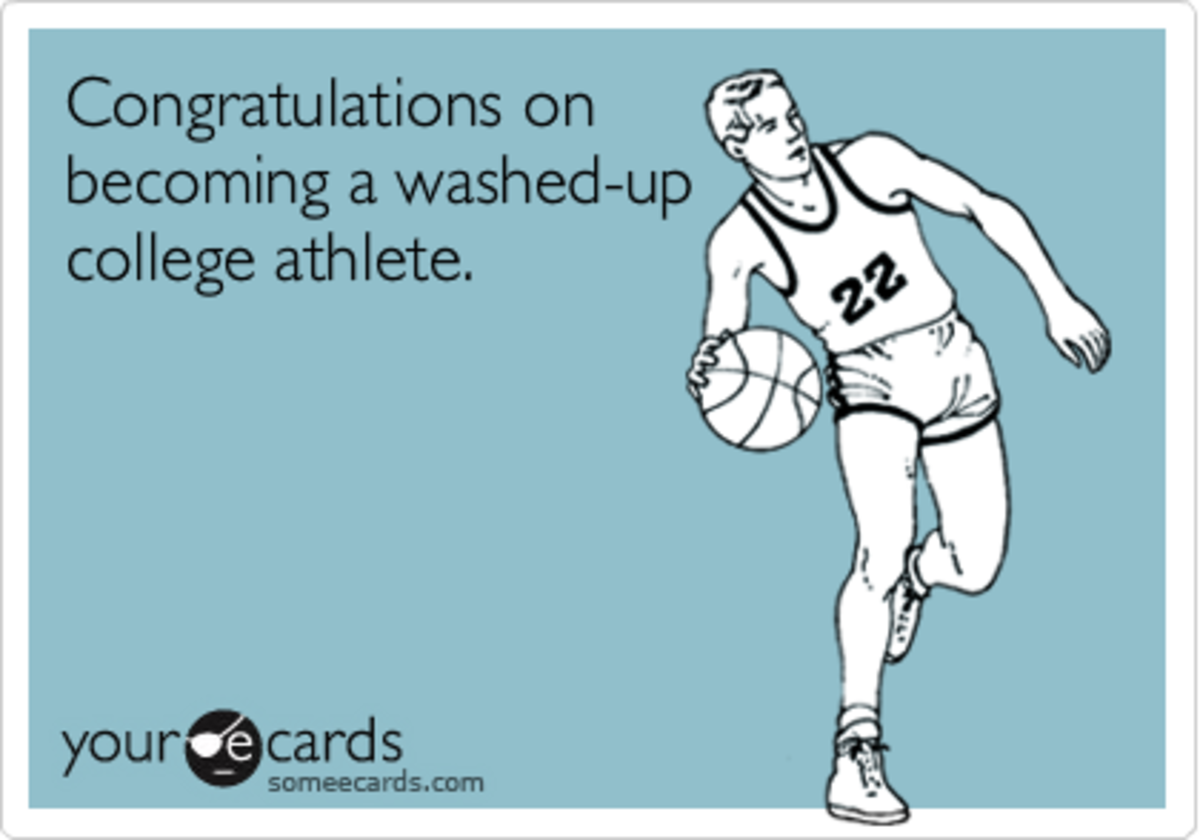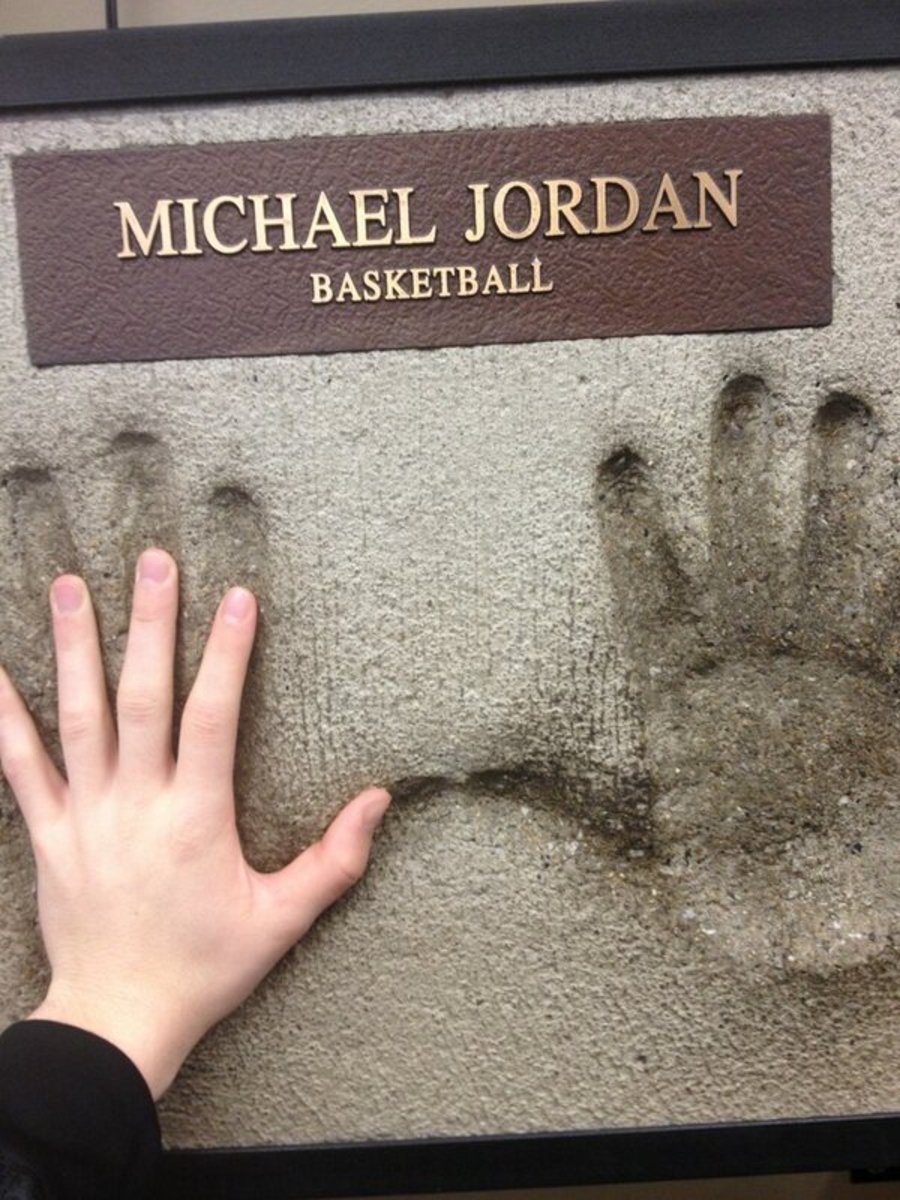How Pro Athletes Should Invest Their Money
Congrats! You're in the Pros! Now What?
In the wake of my hub on Pro Athletes Who Went Broke, I couldn't help wondering how so many athletes are making so many poor choices. I mean, with the money they're shelling out for agents, managers, publicists, etc., wasn't there one person willing to occasionally say, "Hey, that investment sounds like a bad idea..."? Isn't there somebody who could have advised them to sock something away for a rainy day?
With that in mind, I thought it might be worthwhile to craft this hub on how pro athletes should invest their money. Not that any pro athletes will read this and reach out to me for advice. But maybe somebody out there has a relative or friend with talent, and something here will help them down the road and keep them from being another cautionary tale.

How Much Are You Making As a Pro Athlete? No, Really...
First of all, if we're going to discuss how athletes should invest their money, we need to talk about how much they make. Each of the four major U.S. sports (football, basketball, baseball and hockey) have league minimums. However, those numbers vary in accordance with the number of years that a player has been in his respective league. For our purposes, we will look instead at the average salaries for each league (using numbers from Yahoo Sports), which gives the following:
- NFL Average Salary: $1.9 million
- NHL Average Salary: $2.4 million
- MLB Average Salary: $3.31 million
- NBA Average Salary: $5.15 million
Since it helps to work as closely as possible with a real-world example, we're going to assume that we have a hypothetical athlete (that's you, reader) who is earning $3.2 million each year (roughly the average for all four leagues combined). And just for argument's sake, we'll make you an NBA player.
The Agent and Manager
The first thing to realize, Mr. Ballplayer, is that although your salary is $3.2 million you really aren't making $3.2 million. It's almost a certainty that you have an agent and a manager. What's the difference? An agent (think Jerry Maguire) usually has the task of finding you work. This might be selling teams on your assets if you're a free agent, finding endorsement deals, etc. Agents also negotiate contracts. Managers, on the other hand, tend to focus on guiding the athlete's career, often offering business and legal advice (for which they are hopefully qualified). Managers also help with marketing, publicity, travel arrangements, etc. Often, a full-service sports-management firm can offer an athlete both agency and managerial support.
Needless to say, there is a cost attached to this. Fees for agents and managers can vary but are usually based on a percentage of earnings. Here, we'll assume that each gets 10% - a total of 20% of your gross earnings - leaving you with with $2.56 million.
Taxes
Next, you have to pay taxes; there is simply no escaping this. Moroever, taxes for professional athletes are typically complicated, since they get charged taxes for every location in which they play. Thus, an NBA player will get charged New York taxes for the game he plays against the Knicks in NYC, Ohio taxes for a game against the Cavaliers in Cleveland, and so on.
For the sake of simplicity, we'll just take the maximum federal rate of 35% and apply it here. Thus, when the dust settles, you have about $1.66 million left as your take-home pay - a little more than half of what you started with.
Donations and Debts
Everyone is different, so this next bit of advice is not something that everyone can wrap their heads around - especially with the sums of money that are on the table. Still, I think you should tithe or donate 10% of your take-home pay. Personally, I acknowledge a higher power in my life, but even if you don't you've got more than enough to make a powerful difference with a donation to the charity (or charities) of your choice. (You could porobably even start your own.) Assuming you go with that, you'll be left with $1.494 million.
Next, take care of any outstanding debts that you have. I can't imagine that a young kid going into the pros will owe a ton of money to creditors, but to the extent you do pay them off. Just so we'll have some nice even numbers to work with, let's just say you pay off $24,000 in debts, leaving $1.47 million.

The 401(k) and Pension
The next thing you should probably do is contribute the maximum to your 401(k). Professional sports have very generous plans in this arena. For instance, the NFL has 200% matching (yes, 200%!) for 401(k) contributions. You can't beat that! That's like being on Let's Make a Deal and having Monty Hall saying, "I'll give you $2 for every dollar bill in your pocket." (Yes, I know Wayne Brady hosts the new version of the show, but sometimes you go with the classics.)
The NBA deal isn't quite as sweet - only 140% matching - but I'll take that any day of the week. Thus, if you max out by putting $17,000 in your 401(k) - leaving you with $1.453 million - the NBA will toss in another $23,800. And that's every year... (In fact, Professional Athletes' Retirement Plans are pretty nice in general.)
The NBA Pension
At present, you only have to play in the league for 3 seasons to be fully vested for the NBA pension plan. Those 3 years of play will net you approximately $57,000 annually in retirement. (You can also take early retirement at age 45, but with reduced benefits.) This works out to about $19,000 in annual benefits for each year in the NBA.
Benefits currently max out at $195,000 per year for players with 11 or more years in the league. However, let's assume that you are at least good enough to play for the 5 years that is roughly the average length of an NBA career. Based on the known benefit numbers, let's assume this nets you around $95,000 in annual retirement salary.
In short, between the Pension and the the 401(k), you're setting yourself up for a decent retirement. However, if you're only in the league for 5 years (say, from age 22 - 27), and the earliest you can take retirement - even with reduced benefits - is age 45, then you still have 18 years of living expenses to cover.

Live Within Your Means
Now we come to the portion that often is the make-or-break point for athletes: lifestyle. For some reason, professional athletes have come to believe that playing in the big leagues means that you have to adopt this manner of living which requires gaudy and pretentious displays of wealth. Whether it be a fleet of cars, a yacht, homes on both coasts, what have you, they find ways to unnecessarily blow cash.
Your Home
In our scenario, you have $1.453 million left. Since you don't yet have a place to live, buying a home is obviously near the top of your to-do list. However, do not try to buy as much house as you can afford. For starters, you don't need it. Moreover, you don't want all of your wealth wrapped up in your home. And if it hasn't yet been stated, you only need to buy one house.
That said, looking at the money you have left, you can actually afford quite a bit of home. Frankly speaking, you could buy a one-million-dollar home. With no money down, the mortgage will run you close to $9000 per month (including taxes and insurance) at current rates, but that is well within your budget and will allow you to have a very nice home in what is probably an exclusive neighborhood.
Your Car
Next, you'll want a nice car (which is fine), but you don't need a fleet. My rule for how many cars to own is "drivers plus one." Basically, you only need one more car than the number of drivers in your home. Thus, if you have two people in your home who are licensed to drive, you need no more than three cars. If there are five drivers, you don't need more than six cars.
As a young ballplayer coming in the NBA, you'll probably be living alone. Thus, you shouldn't need more than two cars. Anything beyond that is overkill. Moreover, you don't need some wildly expensive vehicle that costs more than most people's homes. Remember, you're banking on having at least 5 good years in the league - the average - and when that time is up you want to still be driving your car around, not living out of it. In other words, you can get two very nice cars and probably cover maintenance, gas, etc. on them for a year with $100,000.
Other Expenses and Your Allowance
Now, having spent $100,000 on cars, you are left with $1.353 million. However, you need to set $108,000 aside immediately in order to pay your mortgage for the coming year, leaving you with $1.245 million. If we assume that you want to have at least $1 Million for investment purposes, that means you have $245,000 remaining to handle other expenses (furnishing your house, utilities, your accountant, etc.), as well as give yourself an allowance. Needless to say, we are stepping onto uncertain ground because the allowance in and of itself can be tricky. A lot of your teammates will be throwing around cash like it grows on tress, and you will be tempted to do the same. Don't!
Statistics say that 60% of NBA players will be broke 5 years after retiring from the league. Don't join your fellow players in any spending spress unless you also want to be joining them in the soup line in a few years, or sharing a cot with them at the YMCA when you're both homeless. Giving yourself a modest spending allowance - say, $5000 per month - will still leave you with a lot of cash for expenses, as well as a nice 7-figure sum for investment purposes.
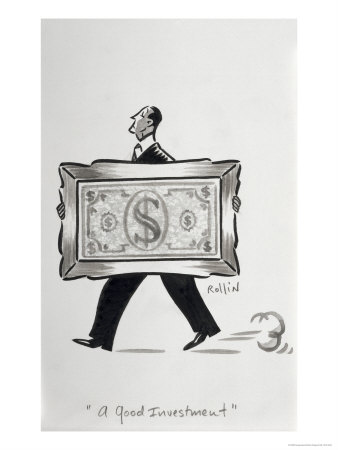
Investing for the Future
Now we come to what it's really all about: investing in such a way that even if you leave the league after 5 years and never play again, you are still set for life. This means setting as much aside as possible in order for it to have the maximum amount of time to grow.
Investing in Stocks, Bonds, Etc.
In our scenario, you still have $1 million for investing purposes. My own feeling is that you can just invest in some solid dividend-paying stocks (like those suggested in Getting Rich With Dividends), and essentially forget about it. (Dividend stocks paying 3% will yield $30,000 annually from a $1 million investment.) However, if you want a little more safety, you could always but 10-20% of this amount into some safe income-producing instruments like municipal bonds that will throw off tax-free cash, or mutual funds. (FYI: To avoid putting too many eggs in one basket, you probably shouldn't put more than 10% of your available funds into any single investment.)
Investing in Businesses Opportunities
As mentioned in What To Do After You Win The Lottery, after you get a windfall like an NBA contract, there's no need to try to prove you're this great businessman. Sure, every athlete wants to be - on the business side - the next Magic Johnson, John Elway or Roger Staubach. (Not that you would mind having their sports careers either.) But it's not going to happen for most of them. If you absolutely have to invest in some business venture, do two things:
- Put a cap on what you're willing to invest - maybe 10% of what you have available for investment purposes - and never invest another penny. No matter what you hear ("We only need another $10,000 and we'll be good!), stick to your guns. Otherwise, they will nickel-and-dime you to death, and before you know it you will have invested twice as much as you wanted to.
- Never, never, never personally guarantee anything! Businesses, banks, lenders, etc. all know that you are rich, and they know that you will be getting big checks (at least for a little while). When you personally guarantee something it means that you are making yourself personally liable for some obligation, and the person owed will have the right to come after you and your personal assets (like your home, car, etc.). So, even if you do the smart thing and form a corporation for business ventures in order to limit your liability, they can still come after you if you signed a personal guarantee. Basically, if they want a personal guarantee, I wouldn't do it.
In short, I'm certainly not opposed to anyone trying to become a business mogul. It's just that you don't have to put everything on the line to do so. (And hopefully you have someone trustworthy in your corner who's not afraid to tell you, "No, that's a stupid idea...")
Start Planning for Life After Sports
With the average professional sports career being so short, you should really start thinking about what you want to do when your ballplaying days are over. (Hey, the rest of us - "the masses" - have to plan for retirement 40 years out!) Naturally, one of the first things former athletes want to do is go into the broadcast booth. Of course, there are only so many of those jobs around, so you're going to have to work hard at differentiating yourself. See if you can get an internship during the off-season (the NBA's Player Development Program is good for this) at ESPN or the like and figure out if it's for you. (In fact, you can get internships in just about anything you can think of: the film industry, investment banking, television, etc.)
Another good arena for former pro athletes is motivational speaking. People love to hear former players talk about their playing days and the life lessons they learned. This is a very good gig, doesn't require a lot of work (often just a good memory), and - best of all - can be extremely lucrative if you put some effort into it.
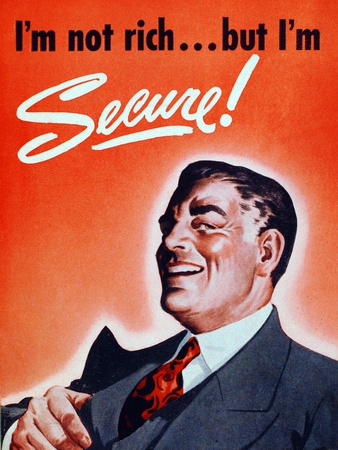
Flash Forward: Your Retirement
Let's say you heeded the advice above and, for whatever reason, you are out of the NBA after 5 years at about age 27. Where are you financially?
- Your 401(k) - You dutifully socked away $17,000 every year and the NBA kindly kicked in another $23,800 for a total of $40,800 annually. After 5 years (and assuming an annual return atthe historical average of 8%), you will have approximately $260,000 in this account. Since you can't touch it without penalty until you're 59-and-a-half, even if you never add another penny this will grow to about $3.3 million over the next 32 years.
- NBA Pension - Again, when you become eligible for full benefits this is estimated to be worth $95,000 per year.
- Investments - Assuming you put $1 million each year into investments returning the historical 8% average, after five years you now have roughly $6.39 million. Even more, if this money is invested in dividend-paying stocks yielding, say 3%, then it's also giving you almost $200,000 per year in dividend income.
In short, you're starting off your retirement with well over $6 million in cash that you can get your hands on at any time you want (and it's paying you almost $200,000 in dividends annually). Moreover, even if you completely blow that in some way (which you will not!), you're already taken care of in your old age with the pension and 401(k). In other words, you may not end up as rich as some others who played the game, but you will always be financially secure.
Poll on Pro Athletes and Financial Training
Should the major sports leagues give players more personal finance training?
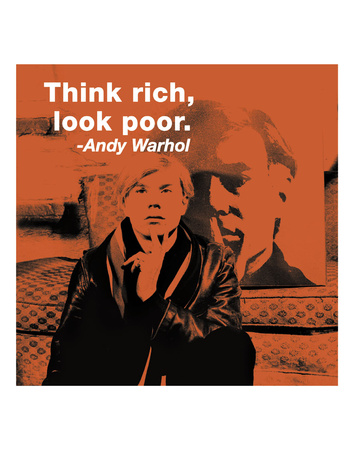
Summary
In short, the sort of game plan noted above can be implemented by just about any athete in the sports world, from #1 draft picks to league-minimum rookies. Moreover, the information provided can obviously be tweaked depending on individual circumstances: maybe you want to buy your parents a house as well (meaning you probably need to downsize your own); perhaps you'll want to save on expenses by living in a nice apartment for a few years as opposed to a house; maybe you'll finance any vehicles you buy instead of paying cash for them.
Moreover, I've presented this scenario in the sense of you getting all the money up-front, but it doesn't work like that. NBA players receive bi-weekly checks during the season, and the numbers we've been playing with here work out to about $20,000 per game (in take-home pay) for an 82-game season. In addition, I did not take into account any money that might be earned from bonuses or endorsements (let's hope your agent is working hard for you in that regard).
Still, with the amount of money being earned in pro sports, none of these guys should be the centerpiece of all these financial horror stories we constantly hear about. Obviously, there needs to be a paradigm shift in terms of their mentality about the lifestyles they're trying to live. They need to think more about how to make the money last forever, instead of merely acting like it will.
(And for a look at a guy who seems to have done well during his sports career and after, please see my hub on The Greatest Basketball Player Ever: Wilt Chamberlain.)




